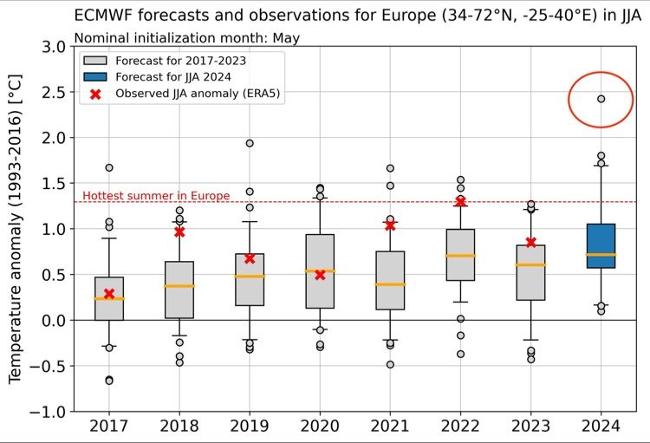The upcoming tourist season is not just another season for Airbnb hosts in Greece. It’s a season that brings with it a multitude of life-altering challenges. These challenges, such as a prolonged drought, a critical water shortage, and record-breaking temperatures unseen in nearly three decades, are not to be taken lightly. They are accompanied by potential new regulations to promote sustainability and escalate electricity costs, all of which demand immediate attention and action.
The Hottest Summer in 30 Years
As the sultry days of summer approach, Crete finds itself grappling with an alarming water scarcity crisis. The once-brimming dams that serve as vital reservoirs for the region have been reduced to mere puddles, their water levels plummeting to concerningly low depths. While these lake reservoirs were once a reliable water source, they now prove woefully inadequate in mitigating the island’s escalating water shortage predicament.
In a desperate bid to combat this looming crisis, municipalities across Crete are scrambling to implement stringent measures to conserve and judiciously manage the dwindling water resources, bracing themselves for a potentially parched summer season.
Airbnb hosts can brace for worsening weather as the European Center for Medium-Range Weather Forecasts has issued a stark warning for this summer, predicting temperatures to soar to a staggering 2.5 degrees Celsius above the averages recorded between 1993 and 2016. This is a significant increase, and it’s vital for us to be prepared for the potential impact on our properties and operations.

The summer of 2022 was the warmest on record in recent years. And since 2023, rainfall in many regions of Greece has plummeted by a staggering 50% in previous months compared to the average of the last decade, as revealed by research conducted by the National Observatory of Athens network and the Meteo.gr (article in Greek).
Total rainfall declined significantly across most areas from October 2023 to April 2024, when Greece typically experiences its highest rainfall. The only exceptions to this trend were parts of Epirus and Western Macedonia. The average for the corresponding seven-month period between 2012 and 2022 was compared.
This phenomenon has adversely impacted water reserves, groundwater levels, crops, and soil moisture while creating more favourable conditions for forest fires. Moreover, it has led to water scarcity in the Aegean islands and Crete.
Higher Electricity Costs
Airbnb hosts, consumers, and businesses may face higher electricity bills due to an anticipated increase in the renewable energy sources (RES) levy. The Ministry of Environment and Energy is considering raising this fee, collected through electricity bills, to address the mounting deficit in the Special RES Account (ELAPE) before the situation spirals out of control.
The ELAPE deficit continues to swell monthly, and according to the latest unofficial estimates from the Renewable Energy Sources Administrator (DAPEEP), it will exceed €600 million by the end of 2024, surpassing the March forecast of €449.8 million and the end-2023 figure of €167 million. This deficit is due to the de-escalation of wholesale electricity rates.
STAMA Quality Standards for Short-term Rentals (STR)
Greece’s Short-Term Accommodation Managers Association (STAMA) has proposed a comprehensive set of stringent quality standards for short-term rental operations in the country. These recommendations aim to elevate the guest experience, prioritize safety, and bolster the nation’s flourishing tourism industry. If approved, the proposal would mandate that Airbnb hosts implement costly measures to meet the quality benchmarks, investing in:
- State-of-the-art, energy-efficient electrical equipment (air conditioners, kitchens, etc.);
- Energy-saving LED lamps;
- Water consumption monitoring mechanisms;
- Biodegradable amenities;
- Waste recycling bins;
- Mandatory civil liability insurance;
- Installation of smoke detectors and energy-efficient heating and cooling systems;
- Non-slip surfaces in bathtubs or showers;
- Refrigerators with freezers and essential kitchen utensils in rental units;
- First aid kits, regularly replenished and inspected before each guest’s arrival;
- Sanitary disinfection of rental spaces between bookings.
Added Pressure Due to Excessive Taxes
Airbnb hosts already know that Airbnb service fees are subject to a 24% value-added tax (VAT). However, a new climate resilience tax will significantly impact the tourism industry during the peak season from March to October.
Five-star hotels charge €10 (£8.60) per night per room, while four-star establishments charge €7 (£6). In the low season, rates decrease to €4 (£3.44). To illustrate, a week’s stay in a five-star hotel during the summer high season will incur a tax charge of €60. From November until February, the climate resilience tax is 0.50€ per day, while on five-star properties, the fee is 4.00€ per day.
Short-term rentals booked through platforms like Airbnb, Vrbo, and Homestay will also be subject to the new tax regime, starting at €1.50 per night. Larger rental properties could face charges up to €10 per night. Airbnb hosts should factor the tax into their pricing strategies to avoid financial losses.
[…] by Sunday when blazing Crete temperatures will start again. For Greece’s biggest island, the downside for many vacationers and businesses will be bigger bills, water shortages, and bad experiences when […]